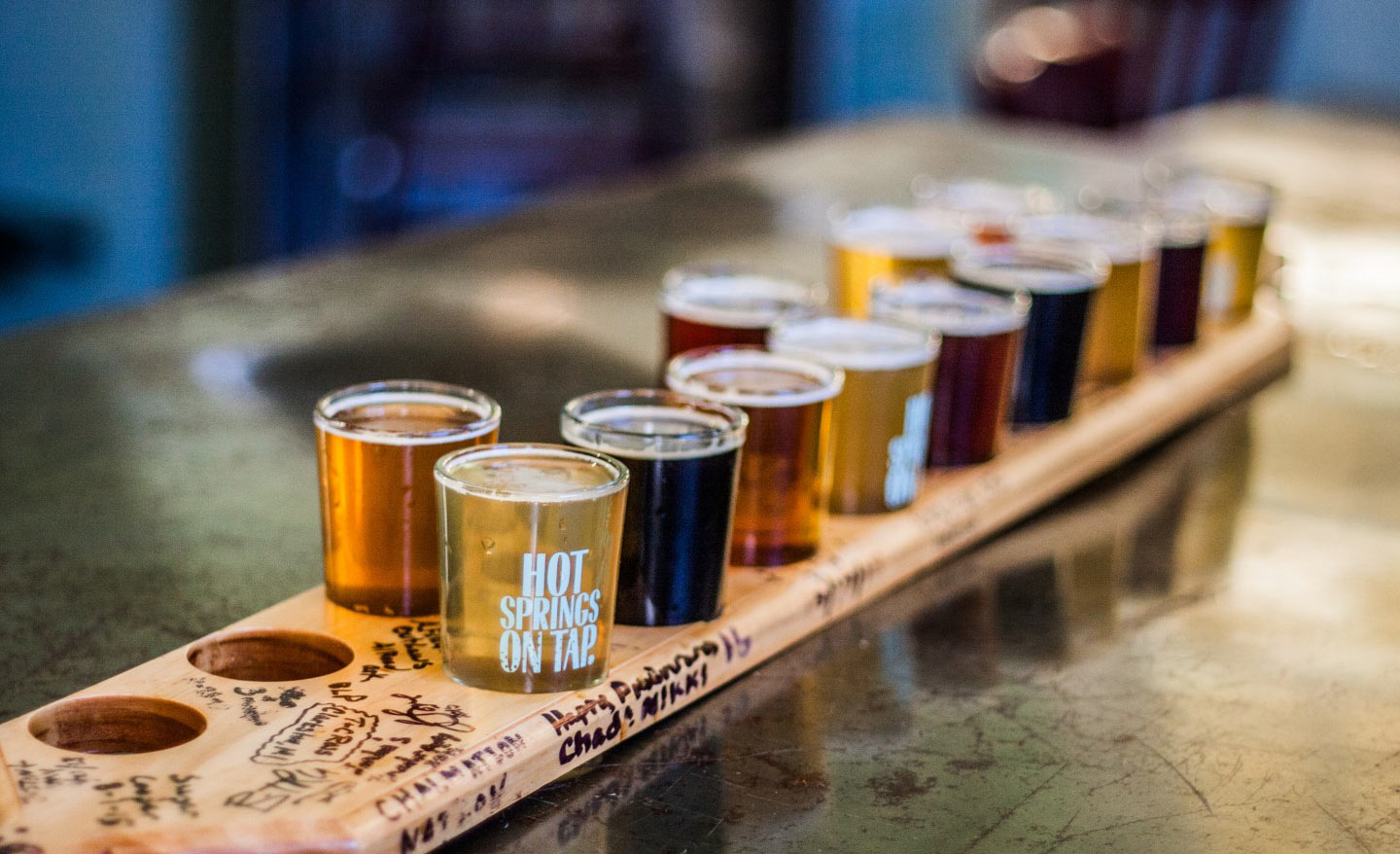Hot Springs on Tap
The nation’s first brewery located in a national park. And the brewmaster is a tuba player.
Exploring national parks can be beautiful but thirsty outings. Unless, that is, you’re in Hot Springs National Park in Hot Springs, Arkansas, which happens to have its own microbrewery.
In 2015, the Superior Bathhouse Brewery and Distillery became the first brewery authorized to make and sell beer on-site in any of the country’s 59 national parks. The very idea of such a thing seems, well, odd, albeit clever and literally refreshing. But it was the sort of brainstorm that required a precise confluence of circumstances when it occurred to Rose Schweikhart ’04, Superior’s owner and brewmaster.
A tuba-playing music major at Conn who moved to Hot Springs when her husband landed a job there running a summer classical music festival, Schweikhart instantly loved the small community in the verdant foothills of the Ouachita Mountains. But she wasn’t particularly energized by the administrative work she was doing, and there were few options for playing her tuba professionally.
After a divorce, though, Schweikhart, an enthusiastic home-brewer, had a thought.
“It occurred to me that it might be interesting to make beer utilizing the water from the natural hot springs,” she says. “And if I could do that, could I do so commercially?”
While pondering the question of how to access the free water most efficiently, Schweikhart learned that Hot Springs National Park was looking for tenants to occupy many of the city’s historic bathhouses that line Central Avenue—most of which had closed or fallen into disrepair after the glory days in the first half of the 20th century, when tourists and celebrities would cluster to the popular vacation and healing spot to soak in the naturally hot water.
“Hot Springs is a different type of town. It’s the only natural urban national park in the U.S. because the actual city is built fronting the hot springs. The foothills rise directly in back of the bathhouses.”
Renovating a classic old building would have been way beyond Schweikhart’s possibilities. Fortunately, the park service also realized the probable limitations of folks who might be interested in leasing one of the bathhouses.
“It was a bizarre experience because no one had ever opened a brewery in a national park before,” says Schweikhart, who in her post-Conn days once audited a doctoral program in business administration at the University of Illinois at Springfield.
“There were a lot of how-to questions and ‘I don’t know but we’ll figure it out’ situations, and the park service was really supportive. Essentially, I’ve always had a bit of a determined entrepreneurial spirit, so I just decided I was going to make this square peg fit in a round hole.”
The process was slow and it was three years before a park visitor enjoyed the first pint of Superior beer. Coming up with architectural drawings, hiring the contractors to transform the building into a functional brewery/taproom/restaurant and conducting IRS research to determine tax credits on a historic building were just some of the issues Schweikhart faced. In the meantime, she had to not only refine her home-brewing technique to a competitive commercial level, but also realize the vision of making the beer using the only potable hot spring water in the world.
“I mean, from the word go, I could have brewed traditional beer in an industrial warehouse. A lot of really great craft brews happen that way,” Schweikhart says. “But to me the whole magic was to use this historic setting in a national park and incorporate the thermal water into the process.”
The water flowing through the pipes at Superior runs at about 140 degrees Fahrenheit, Schweikhart explains, so she had to heat it only about an additional 35 degrees to reach the normal brew-day requirements. As such, the operation saves time and overhead.
“I’d been making a lot of beer at home for a lot of years and, you know what, it was pretty good,” Schweikhart laughs. “Beer is a complicated thing to produce, but it’s creative and fun. And the opportunity to work with the hot spring water is exciting and gives our beer a flavor reflective of the natural environment.”
The beer menu changes seasonally and offerings range from sours and wheat beers to all manners of ales, stouts and even a Belgian-style tripel. The sleek, airy layout of the space is optimal for people-watching, and the creative pub-food menu is clever and aesthetically designed to complement the beers.
As a full-time brewmaster Schweikhart doesn’t have much time to play her beloved tuba. However, the disciplines share characteristics.
“I think about beer as music constantly,” she says. “It’s complicated to produce, and there are infinite possibilities between grains and water and hops and yeast and fruits and spices and minerals and bacteria ... If you can dream up a beer in your head, you can make it. That’s music.”
